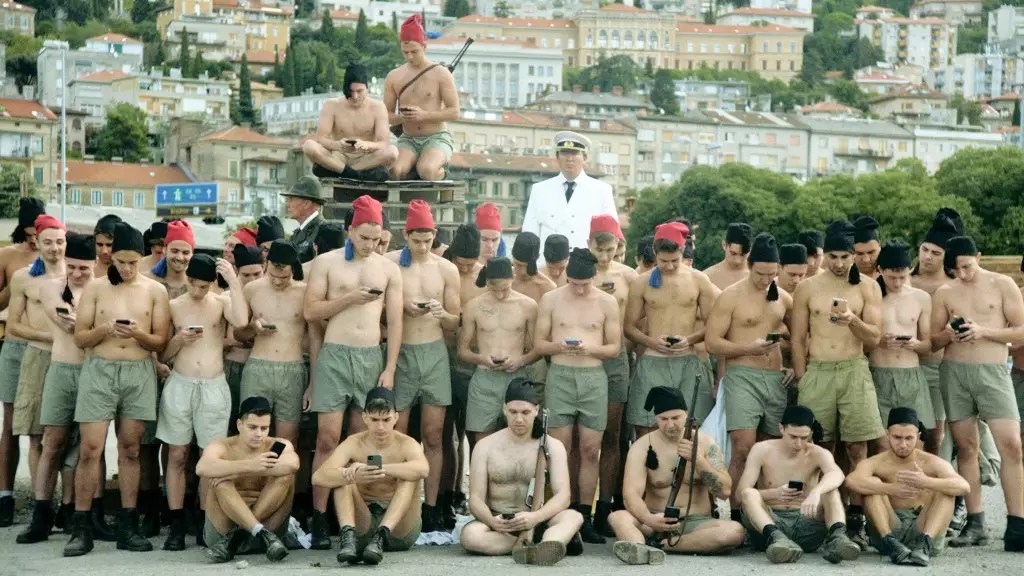Igor Bezinović’s documentary, *Fiume o Morte!*, has emerged as a significant cinematic exploration of Gabriele D’Annunzio, a polarizing figure in Italian history. Winning the esteemed Tiger Award at the International Film Festival Rotterdam (IFFR) along with the FIPRESCI Award for excellence in the Tiger Competition, this film resurrects D’Annunzio’s legacy amidst contemporary discussions of nationalism and identity. D’Annunzio’s endeavors to claim the city of Fiume (now Rijeka, Croatia) for Italy, following the First World War, strike a chord today as nations grapple with the ramifications of historical territorial disputes.
Utilizing a blend of documentary techniques alongside dramatic reconstruction, Bezinović offers audiences a nuanced approach to understanding D’Annunzio’s motivations. His discontent with the Paris Peace Conference—a gathering of world powers tasked with redrawing national borders after the war—propelled his campaign to annex Fiume, and in retracing this man’s fervent nationalism, the documentary probes deeper: it challenges us to interrogate the implications of such fervor in modern Europe.
The jury that awarded *Fiume o Morte!*—which included notable filmmakers and industry veterans—recognized the film not just as a recounting of history, but as an examination of how public spaces and collective memories shape contemporary narratives. With a world facing a resurgence of ultra-nationalism, the film serves as a reminder that history is not just a past event but a living narrative that influences current ideologies. In their summation, the jury articulated an awareness that the exploration of such subjects must evolve in tandem with our understanding of contemporary societal challenges.
While *Fiume o Morte!* takes center stage, it is important to note the diversity offered in the wider competition at IFFR. Films such as Sammy Baloji’s *L’arbre de l’authenticité* and Tim Ellrich’s *Im Haus meiner Eltern* also grapple with their own complex historical narratives, illustrating how the medium of documentary and film essay can serve as vessels for poignant social commentary. Baloji’s exploration of the Democratic Republic of Congo’s historical relationship with colonialism and Ellrich’s familial drama present powerful statements on the lasting shadows of the past.
The festival also featured a category bridging popular, classic, and arthouse cinema, further showcasing the varied storytelling styles available to filmmakers today. Swedish director Jon Blåhed’s *Raptures*, which acquired the main Big Screen Award, presents a deeply personal narrative of a woman entangled in her husband’s extremist beliefs. By juxtaposing personal struggle with broader societal conflicts, filmmaker Blåhed also raises questions about personal agency and the autonomy of individual identity under external pressures.
The recognition of films like *Raptures* emphasizes a growing trend within the film industry to explore how narratives intersect with collective histories. This is particularly relevant in a time when identities are constantly under negotiation, not just nationally, but personally and globally.
In a standout moment, the NETPAC Award, which celebrates films from the Asia and Pacific regions, was awarded to Varsha Bharath for *Bad Girl*. This coming-of-age tale dives deep into the psyche of an Indian teenager, illustrating the friction between personal desires and familial expectations. Such narratives resonate with audiences around the world, embodying a shared journey through adolescence while navigating complex cultural landscapes.
The recognition of Bharath’s work reinforces the importance of diverse voices in film—a very relevant discourse given today’s fragmented media landscape. By amplifying stories that challenge dominant narratives, filmmakers can foster greater empathy and understanding among global audiences.
Overall, IFFR’s showcasing of *Fiume o Morte!* and its accompanying films provides a platform for vital discussions surrounding identity, history, and nationalism. Bezinović’s documentary acts as a mirror reflecting the intricate relationships between past and present, urging us to confront our own histories. The recognition and exploration of such films highlight an evolving cinematic landscape that embraces complexity and diversity, serving as crucial elements in the ongoing dialogue about identity on both individual and collective levels. As filmmakers continue to navigate these themes, it remains clear that the past will always inform the present, shaping our understanding of who we are in an increasingly globalized world.


Leave a Reply